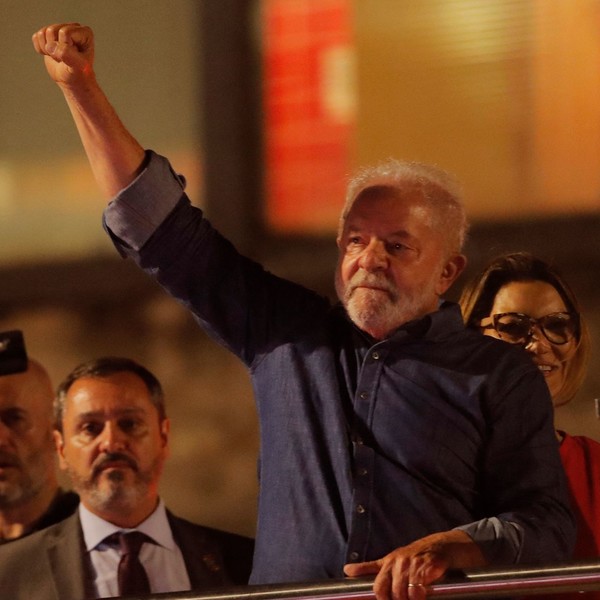“The people will eat steak and drink beer again… they will be happy again,” said Luiz Inácio “Lula” da Silva, the leftist president-elect of Brazil who had served two presidential terms spearheading the country’s economic prosperity in the 2000s. By emphasizing the government’s role in combating poverty, he replaced the conservative incumbent Jair Bolsonaro in the presidential election held on October 30. Lula secured 50.9% of the votes while Bolsonaro took 49.1%, marking Brazil’s closest presidential race in history. It was also the first time a president failed to secure a second term since a constitutional amendment allowed re-election in 1997. The 2022 election was a denunciation of Bolsonaro’s four years of far-right policies and a powerful political revival for Lula. Global leaders rushed to congratulate the results, praising it as a triumph of democracy and an opening of a new era. Then what can be expected for the next four years in Brazil?

First of all, in order to understand Lula and his supporters’ hopes for the country, one must understand how symbolic of a figure he is. When he first took office in 2003, he was in charge of leading a nation with tremendous but unrecognized potential. Brazil’s ample supply of iron ore, beef, soybeans, and sugar was vigorously consumed by a rapidly growing China. This economic relationship with China paved the way for Brazil to become the sixth-largest economy in the world at that time, and the country was able to pay off its debt from the International Monetary Fund quickly. The booming offshore oil industry also forecasted a promising future, and money was poured into social welfare programs and infrastructure projects that provided industrial jobs. During Lula’s first two terms, more than 20 million people were lifted from extreme poverty — a tenth of the population. He left the office in 2010 with an unprecedented 80% approval rating. In this 2022 election, Lula again promised expanded social welfare programs, higher taxes on the rich, higher minimum wage, and increased government spending to support those in need. His central pitch to voters was to lift up the working class and fight for equality.
His symbolic reputation as the champion of the poor has fueled hope in the Brazilian public, but the president-elect will be inheriting a very different Brazil than he did two decades ago. Brazil slipped into recession in 2014 after Lula’s handpicked successor led the country with an interventionist policy, and it has only worsened during the turbulent four years led by Bolsonaro, who was criticized for mishandling the pandemic. Poverty has soared, and the country is yet to recover from the economic setbacks caused by the pandemic. Brazil’s economy is predicted to grow only 0.6% in 2023, and the slowing growth of China, its biggest trading partner, isn’t any more promising. Additionally, Bolsonaro’s right-wing party secured its position as the largest party in both chambers of the Congress in last October’s congressional elections, not to mention that Lula’s narrow victory reveals a greatly divided nation. Polls suggest that voters with an income level of less than 400 USD per month tend to support Lula, while those better off are more likely to favor Bolsonaro. How successfully the president-elect pushes his agenda through a more conservative Congress and a divided and troubled country shall determine the next four years of Brazil.
Brazil’s presidential election was also a mandate for the future of the Amazon Rainforest. Bolsonaro is notorious for accelerating deforestation by cutting funding to agencies that protect the rainforest and indigenous groups and by supporting industries that exploit the resources of the forests. Conversely, Lula reduced deforestation significantly during his previous presidency. In this year's elections, Lula promised to combat illegal mining and logging in the Amazon by resuming monitoring and surveillance of the rainforest. Some environmentalists described the day after Lula’s victory as “a day of hope for the world”. On October 31, Norway announced that it will resume the suspended financial aid dedicated to reducing deforestation in Brazil. Still, it will take time and effort to restructure the environmental agencies damaged under the Bolsonaro administration.
Changing the leader of the government will not change the country overnight, especially when that country is deeply polarized and struggling amidst economic setbacks. Bolsonaro, who repeatedly criticized the election for fraud, remained silent for days after the election but conceded to the results on November 2, contrary to the fears that he might become the “Trump of the Tropics”. Before his official acceptance of the results, several protests and road blockades led by right-wing supporters erupted, but Bolsonaro also asked to end such protests. Brazil’s 2022 elections showed that the country’s democracy — although turbulent — remains strong and resilient, and there are still high hopes and expectations for a new era where “the wheels of the economy will turn once more,” as the new president-elect has promised his country.

